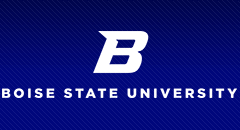Department
Sociology
Disciplines
Educational Sociology
Abstract
There are over 2.3 million people currently incarcerated in the United States (Wagner and Rabuy 2017). This incarcerated population represents this nation’s poorest, most isolated, most mentally ill, and least educated persons (Thompson 2013). And, even though the Pew Research Center recently argued the racial gap in prisons had narrowed, people of color continue to be significantly overrepresented (Tucker 2016; Gramlich 2018). Legal scholar Michelle Alexander asserts that upon reentry into society, formerly incarcerated individuals are sequestered into what she has termed America’s new undercaste—“a lower caste of individuals who are permanently barred by law and custom from mainstream society” (Alexander 2012; pg. 13). Despite recent research that concludes that individuals with a conviction history and incarceration experience are the most successful of those who are released and “enrich institutions of higher education” (Halkovic and Greene 2015:760), they continue to confront many unique barriers while pursuing higher education. I utilize the narratives of four formerly incarcerated students to illuminate the most enduring barriers that this population faces. I have found that institutional discrimination, surveillance, and media shaming criminalize and stigmatize formerly incarcerated college students encouraging them to conceal their conviction and incarceration history on campus which in turn undercuts the efficacy of their education and maintains their second-class status.
Abstract Format
html
Recommended Citation
Fretwell, Michelle
(2019)
"Punishment Beyond Bars: Pursuing Higher Education with the Degree of Incarceration,"
McNair Scholars Research Journal: Vol. 14:
Iss.
1, Article 9.
Available at:
https://scholarworks.boisestate.edu/mcnair_journal/vol14/iss1/9

